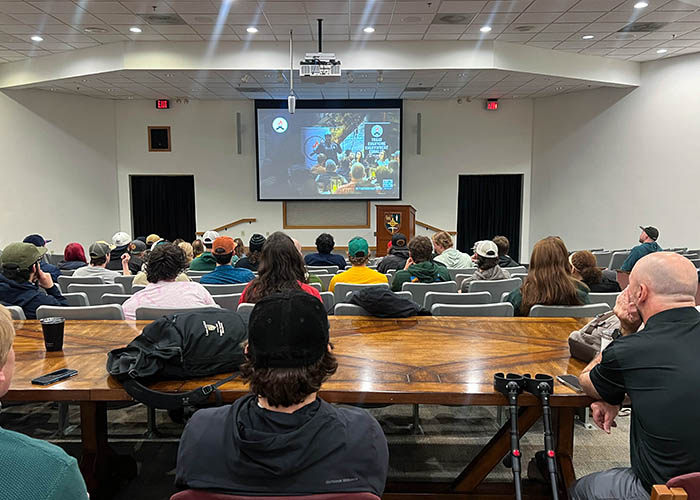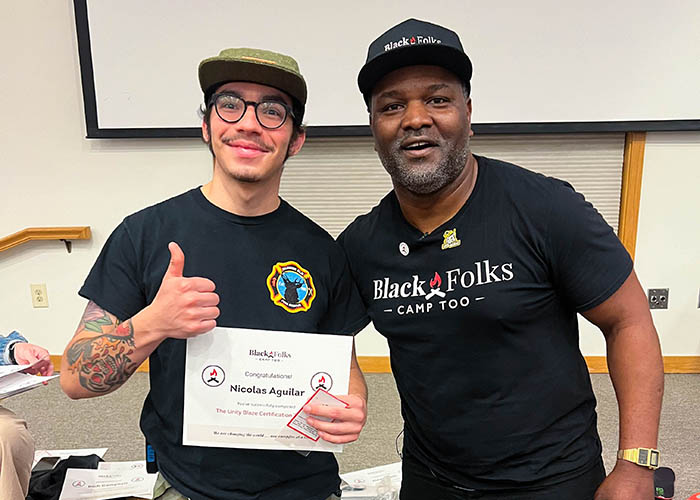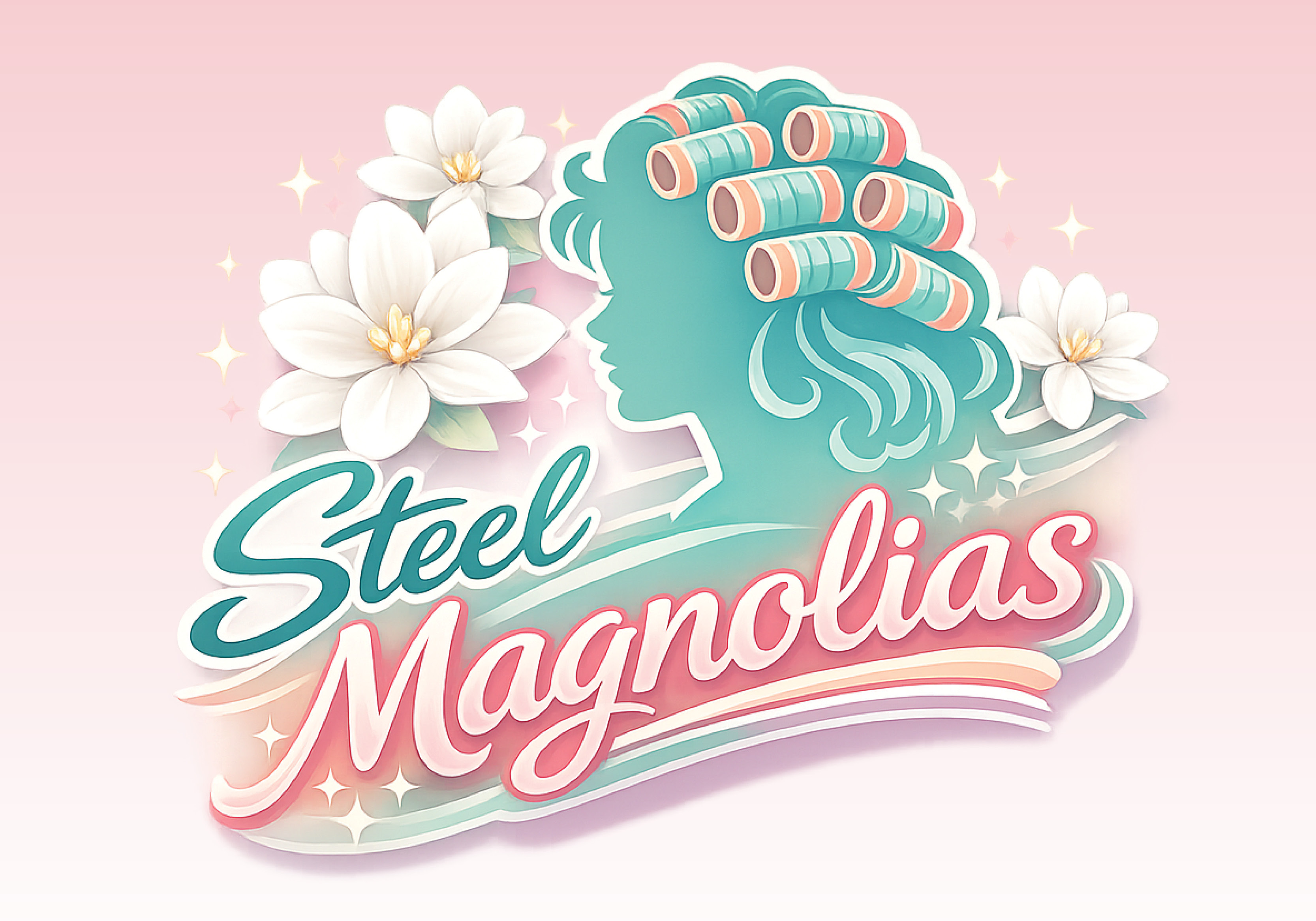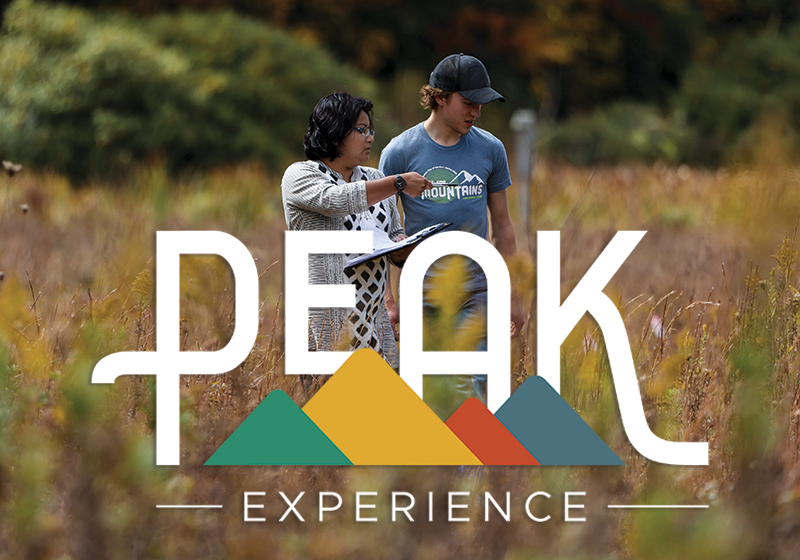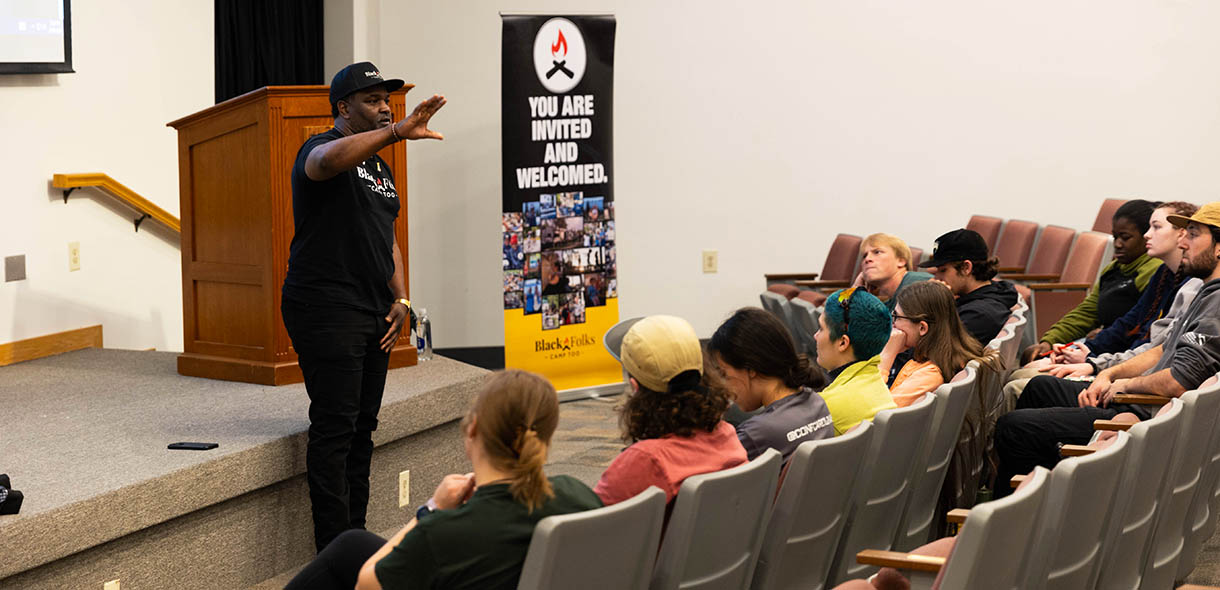
Lees-McRae is first college to become Unity Blaze certified with Black Folks Camp Too
Lees-McRae has taken an important step toward promoting racial inclusivity in the outdoor industry by getting 100% of Outdoor Recreation Management students Unity Blaze certified through a partnership with Black Folks Camp Too.
The Brevard, North Carolina-based company was founded by Earl B. Hunter Jr. to address a growing problem he saw in the outdoor recreation industry. In his experience working with outdoor companies, he saw very little attempt to reach out to potential customers of color, particularly Black customers.
“The outdoor industry, which is a $1.1 trillion industry, is going to fail because they don’t understand data. The data they don’t understand is that the minorities in this country, in the next 10 or 15 years are going to be the majority,” Hunter said during his presentation at Lees-McRae. “Well guess what the minorities in this country don’t do? They don’t go in the outdoors.”
According to an Outdoor Participation Trends Report by the Outdoor Foundation, 71% of outdoor recreation participants in 2022 were white, despite comprising 59% of the total population. If the demographic makeup of the participant base remains steady, the percentage of the total population that participates in outdoor recreation could drop from 54% to 40% by 2060. As Hunter points out in his presentation, that loss of participation has ramifications beyond the economic health of the industry: if the majority of Americans don’t spend time in outdoor spaces, they won’t understand their value, and so won’t care about protecting and preserving them for future generations.
“When we’re talking about how people spend their money, how people vote, if the folks that have the power and the money are the majority of this country, and if they don’t care about the parks and they don’t care about the outdoors, these places that we love, that we use as our classrooms, will be gone,” Associate Professor of Outdoor Recreation Management Katie Wall said.
Hunter presented at Lees-McRae as part of the High Country Adventure Film and Speaker Series, which is sponsored by the Outdoor Recreation Management program. Wall had been aware of Hunter’s work for some time, and after earning the Unity Blaze certification herself, knew that this was something that would benefit students who are planning to pursue careers in the outdoor industry.
“Our outdoor industry is predominantly white and male, so he debunks a lot of the myths about why Black people aren’t in the outdoors and helps us understand how we can increase their engagement and how we can take a very active role in that, and also how we can change the industry,” Wall said.
Hunter’s visit to the college, which included the Unity Blaze certification, a public address, and presentations to several classes and athletic teams, was organized by students in the ORM-315 Outdoor Recreation Administration course. One of those students, senior Outdoor Recreation Management major Jones Hobgood, said he was interested in helping bring Hunter to campus because of his own experiences introducing outdoor recreation to those who didn’t grow up with it like he did, including his girlfriend, who is multiracial.
“I thought it was pretty cool that there’s someone out there trying to get more diversity in the outdoor recreation community in general, other than non-profits,” Hobgood said. “There’s someone out there spending money to get people camping, which I thought was really awesome.”
For Hobgood, who “couldn’t imagine growing up and not going camping,” going through the Unity Blaze certification and learning about why people of color don’t participate in outdoor recreation more was eye-opening. Hunter explained that there are three primary reasons outdoor recreation has remained mostly white: people of color have a “generational fear” of the outdoors, they don’t feel welcomed or invited, and because they haven’t grown up participating in the outdoor industry they don’t know where to start.
“If you’ve never been in the outdoors, you have no knowledge. You need to at least know where the trailhead is,” Hunter said.
Through the Unity Blaze certification, Hunter has been able to talk to outdoor recreation professionals about the challenges they face in diversifying the outdoors and how to overcome those challenges, from making the outdoors safer for people of color to doing specific outreach that lets people know they are welcome.
Hobgood and his fellow students have drafted a 30-60-90 Day Action Plan to begin implementing the lessons from Hunter at Lees-McRae. The immediate steps they plan to take include gathering demographic data about student participation in outdoor technical skills courses, creating an outreach committee to drive student engagement, and planning an event calendar for the upcoming academic year that prioritizes reaching out to students of color. Further down the line, they hope to engage parents, implement the Unity Blaze training into course curriculums, and develop mentorship programs to support emerging leaders.
After he graduates, Hobgood plans to work with Florida Fish and Wildlife before eventually moving out west to do avalanche control. While a decline in the outdoor industry will certainly affect his career prospects, Hobgood believes that maintaining outdoor spaces has a deeper importance.
“We came from the outdoors. That’s where we belong,” he said. “There’s a reason people do wilderness therapy or go out in the wilderness to find themselves. You feel challenged, but you also feel at home. There’s an energy you feel from Mother Nature. I want people to feel that same thing that I feel.”
